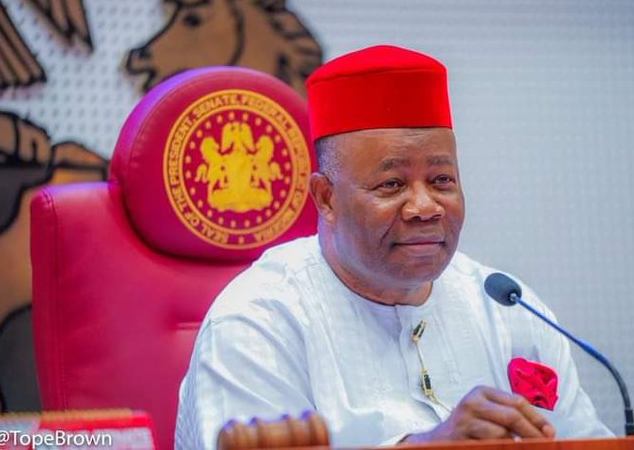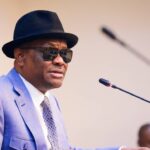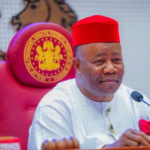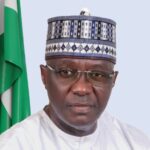Senate President Godswill Akpabio has warned against the misuse and politicisation of religion, describing it as a threat to Nigeria’s democratic values and social harmony.
He called for unity and peace while speaking at a High-Level Discussion on Religion and Democracy in Abuja, organised by the National Peace Committee (NPC), The Kukah Centre (TKC), and the European Union (EU).
Represented by Senator Adams Oshiomhole, Akpabio noted that religious violence undermines democracy and social cohesion. He cited Mahatma Gandhi’s words, “An eye for an eye only ends up making the whole world blind,” to urge Nigerians to end the cycle of religious strife and promote mutual respect.
He emphasised the need for collective action by government officials, religious leaders, and civil society to foster peaceful coexistence. Akpabio stressed the importance of turning places of worship into sanctuaries of peace, where dialogue and compassion prevail over conflict. He also reiterated the significance of safeguarding Nigerians’ right to worship freely in a diverse religious environment.
- Tax reform: Northern senators demand suspension of action on bills
- FG’s sector-wide initiative yields $1bn to boost local healthcare products – Shettima
Akpabio commended General Abdulsalami Abubakar and Rev. Matthew Hassan Kukah for their commitment to peacebuilding and dialogue, describing their efforts as inspirational.
Speaker of the House of Representatives, Hon. Abbas Tajudeen, also condemned the politicisation of religion, calling it a major challenge to Nigeria’s democracy.
Represented by House Majority Leader Hon. Julius Ihonvbere, Abbas warned that exploiting religious sentiments for electoral gain erodes democratic principles such as justice, equality, and representation.
“This exploitation can lead to sectarian violence and social unrest, further eroding trust in the democratic process,” he said. Abbas pointed to the absence of interfaith dialogue as a factor deepening divisions and hindering national development.
Despite these challenges, Abbas expressed optimism about religion’s potential to strengthen democracy, citing faith-based organisations’ contributions to education, healthcare, and social justice. He urged religious leaders to promote peace, tolerance, and compassion, reminding them that religion should unite, not divide.
On his part, Rev. Matthew Hassan Kukah, the Catholic Archbishop of Sokoto Diocese, highlighted the country’s struggle with governance and religious divisions. He lamented that many Nigerians die in the name of both democracy and religion.
Kukah noted that while democracy has delivered some positive outcomes, Nigeria remains deeply divided. He emphasised the need for a secular space to allow democracy and human rights to flourish.

 Join Daily Trust WhatsApp Community For Quick Access To News and Happenings Around You.
Join Daily Trust WhatsApp Community For Quick Access To News and Happenings Around You.


